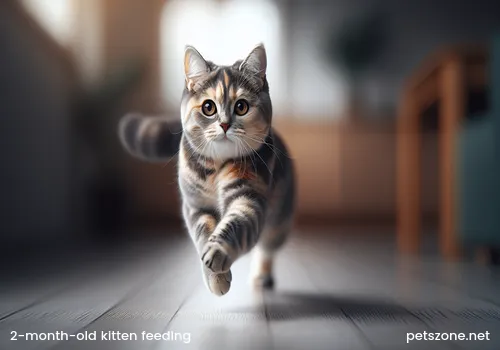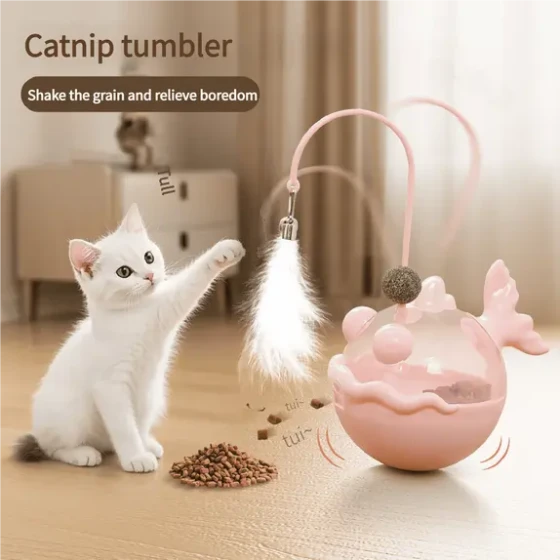How much does a 2-month-old kitten eat
A 2-month-old kitten has different nutritional needs compared to an adult cat. As owners, we should provide this kitten with a suitable diet to meet its nutritional requirements so it can grow up healthy and happy. So, how much should a 2-month-old kitten eat in a day?
1. A 2-month-old kitten should eat 3-4 meals daily

A 2-month-old kitten should eat 3-4 meals every day, with each meal amounting to 2-3 tablespoons. The meal portion can be adjusted depending on the specific situation. In addition, a 2-month-old kitten should also get some water intake daily. Kittens can easily get thirsty, so it is important to help them supplement enough water every day, such as drinking plain water, milk replacer water, kitten milk, or plain water placed in the drinking bowl daily, to ensure they receive sufficient hydration.
2. What should a 2-month-old kitten eat
A 2-month-old kitten should eat highly nutritious, easily digestible foods that contain plenty of vitamins and minerals. Such foods can help the kitten grow healthily and improve immunity. For example, kittens can eat grain-based foods such as rice, noodles, corn, wheat, barley, and other porridge-like foods; protein foods like eggs, lean meat, fish; and foods rich in vitamins, such as vegetables and fruits.
3. Foods a 2-month-old kitten should not eat
Foods that a 2-month-old kitten should not eat include undercooked eggs, such as chicken and quail eggs, which can cause gastrointestinal diseases in kittens; milk, pork, and horse meat, which can cause indigestion; cured meats like bacon, sausages, and cheese, which are high in fat and harmful to kitten health; and also foods like scallions, onions, and coriander, which can cause diarrhea and other illnesses in kittens.
4. Summary
A 2-month-old kitten should eat 3-4 meals daily, with 2-3 tablespoons for each meal, along with adequate water supplementation. Additionally, the kitten should consume highly nutritious, easily digestible foods rich in vitamins and minerals, such as rice, noodles, corn, wheat, barley, and other porridge-like foods; protein sources like eggs, lean meat, fish; and vitamin-rich foods like vegetables and fruits. Foods that kittens at this age must avoid include undercooked eggs, milk, pork, horse meat, cured meats, cheese, scallions, onions, and coriander.

-560x560.webp)

-560x560.webp)

